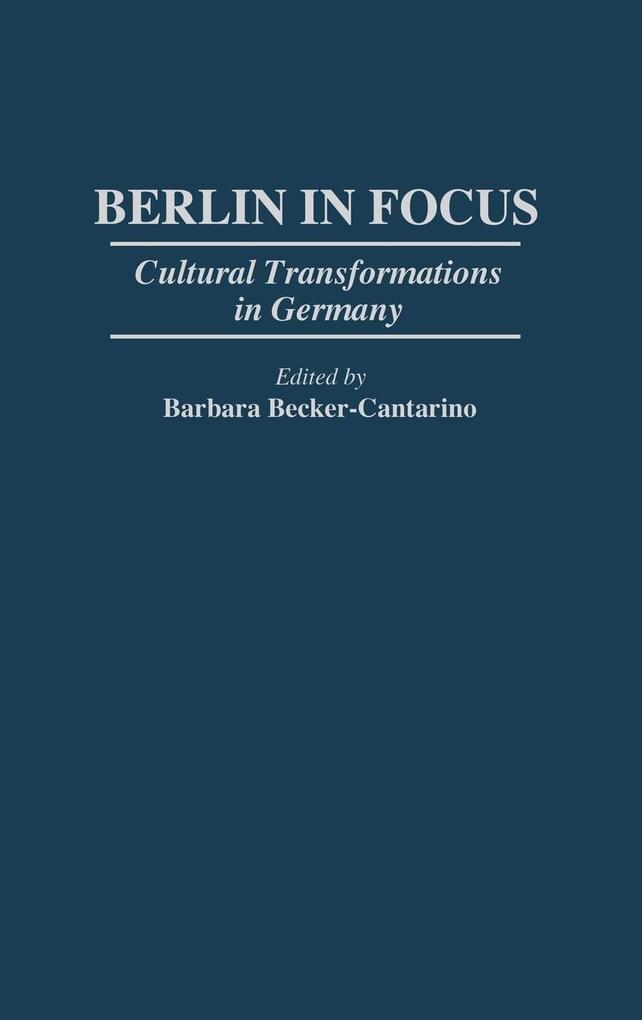This collection of essays breaks new ground in looking at Berlin after the fall of the Wall as the city struggles to re-establish itself as the cultural and political capital of Germany. The essays offer insightful readings of the metropolis, its people and institutions, as a paradigm for modern Germany. They focus on important cultural developments and changes as they occurred especially, but not exclusively, in Berlin. Issues explored include women's role in the restructuring of higher education in Berlin, the impact of State Security at Humboldt University, problems of a growing immigrant population, and the innovative counter-culture ventures in the Prenzlauer Berg district. Other chapters address major cinematic responses to the city by reknowned filmmakers Wim Wenders, Walter Ruttman, and Helke Sander; and the representation of Berlin and the Berlin Wall in modern fiction. This volume makes an important contribution to the discourse on German identity.
Inhaltsverzeichnis
Preface
Reflections on a Changing Berlin by Barbara Becker-Cantarino
"A Free University - Free of Women?" Women and Higher Education in Berlin since 1989 by Hannelore Scholz
Stasi at Humboldt University: State Security's Organizational Structures and Control Mechanism in the University by Hanna Labrenz-Weiss
Berlin: A New Kaleidoscope of Cultures by Carol Aisha Blackshire-Belay
Art and Money: Cultural Innovations within the Urban Setting of Prenzlauer Berg by Friederike Eigler
The Woman and the Camera: Walking in Berlin. Observations on Walter Ruttmann, Verena Stefan, and Helke Sander by Anke Gleber
Wim Wenders' Berlin: Images and the Real by Brigitte Peucker
The Ubiquitous Wall: Divided Berlin in Post-Wall Fiction by Siegfried Mews
Berlin as Locus of Terror: "Gegenwartsbewä ltigung" in Berlin Texts since the "Wende" by Anna K. Kuhn
Select Bibliography
About the Authors
Index












